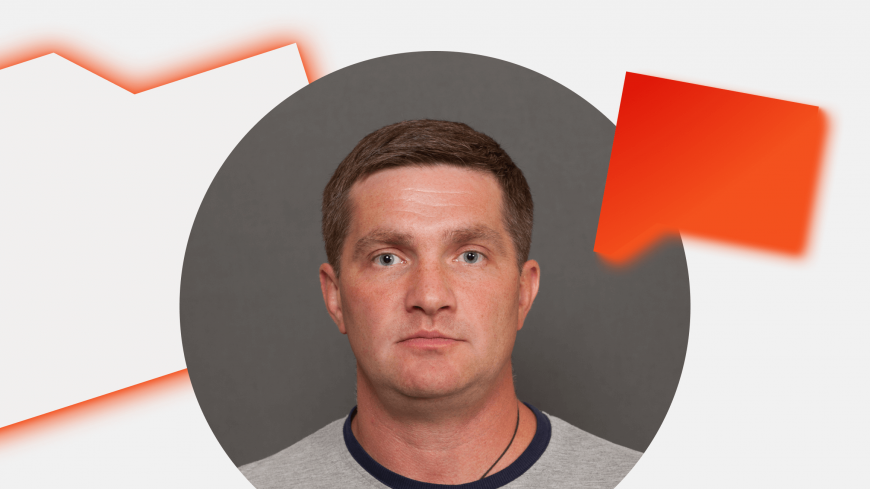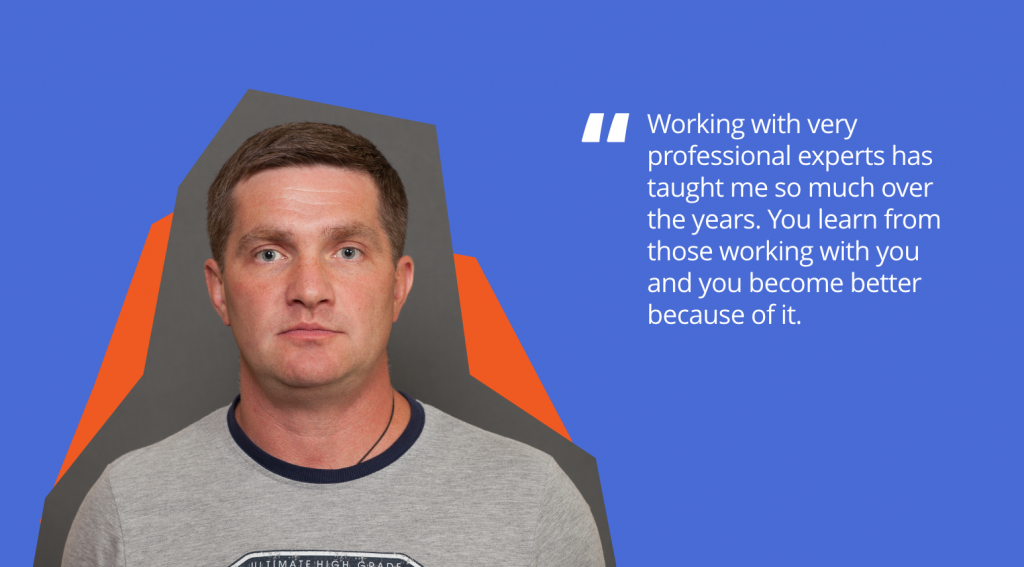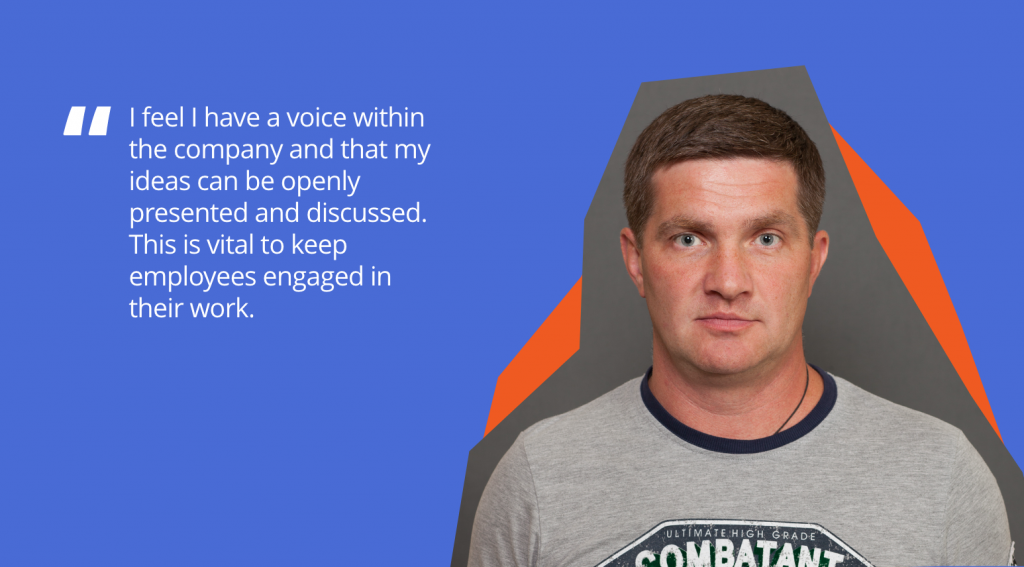Interview with Ilya, IT Manager
We are happy to have Ilya, IT Manager, join us for a conversation in the latest edition of dxSpotlight. Ilya has been at Devexperts for over a decade and his passion for the job has a distinctly human side that shows us how much of a career is made by the people we are lucky to have by our side.

Devexperts has been your professional home for almost 13 years. When you look back to your path within the company, what would you say are your personal highlights?
With so many years passed, it’s funny how it is still difficult for me to highlight something in specific. More than the projects themselves, it’s the people that I work with that are my own personal highlights.
Working with very professional experts has taught me so much over the years. There are some names that I feel the need to express how important they have been on my professional path. They are Vladimir Fetisov, Evgeny Galaktionov, Oleg Korotkov, Sergey Samushin and Sergey Timofeev.
It is people like them that significantly impacted the way I do my job. How I think about the processes, my attitude to difficult situations, and even how to face doubts and decide what is the best course of action. Sometimes you need others to show you something that has perhaps eluded you thus far. You learn from those working with you and you become better because of it.

What is a normal day in your life as an IT team manager?
It’s the necessary mix of supervising projects combined with meetings with my team to ensure that everything is running smoothly. Routine procedures such as these are important to establish a high level of quality in our work and ensure proper communication between all those involved. I believe the most important part of this job is to strike a balance between productivity and fostering a sense of trust in our team members.
What were some of the biggest challenges you have faced in your career thus far?
On a multinational company like ours, there is the need to learn how to work with different cultures and even professional mindsets. This can be quite challenging at times when there is a need to distribute processes across teams from around the globe. I’m happy to see progress in that aspect and it has been a very interesting experience that I have learned a lot from.
How do you keep yourself motivated after all these years?
It’s not always smooth sailing. There are times where I feel more motivated and other times where I’m not as driven as I would like to be. But this is a natural process, we work with machines, but we are human after all.
And it is that human side that truly brings out the motivation over and over again. I am lucky to have incredible people working with me, not only on my team, but with other departments. It’s in working with them and learning together that my motivation comes through. I feel I have a voice within the company and that my ideas can be openly presented and discussed. This is vital to keep employees engaged in their work.

You have quite an extensive list of people you trained over the years. What do you value the most when training a newcomer? What are your priorities?
I always look to help newcomers develop a high technical level of expertise, so it is important they are open to improve their processes and have a good ability to communicate. Besides this, any employee should know how to create documentations to fill our knowledge as a whole and be aware of the need to share critical information with colleagues.
What leadership advice would you like to share with those struggling to keep their teams happy and engaged in their work?
Learn to be patient and trust your team while pushing them to the best possible work. How to combine these two? Each person has their own personal style, so it’s up to you how you do it. Being patient and trusting is key to lead your teams but it has to be balanced with clearly defined boundaries so that we can meet our goals.
Germany has been your second home for the last few years. What was it like to leave Russia behind to start working in our Munich office?
I actually wouldn’t say that I left Russia behind. Sure, I moved to another country but I still maintain a very strong connection with my relatives, my Russian friends and colleagues and I am happy to have them in my German home when they come to visit on the holidays.
That being said, it was a challenge at first to move with my family to Germany. The first few months were demanding with the change of school for the kids and the overall changes that happen when a family moves far away.
I wouldn’t say that my life has changed dramatically despite the change in scenery. But I have to say it’s great to be able to travel to other European countries and visit them in such a short distance from my current home. That really opened up our possibilities to travel more often and get to know other places and cultures.
When you take off your IT manager’s suit, what else fascinates you?
I love to watch football and to watch my kids playing it and being there supporting them. They sometimes support me when I play with my neighbors in my small town.
What’s your football team?
In our community, I support TSV Gersthofen, a small football club from the town I live in. I also am a fan of FC Augsburg, a club from the region I currently live in. In my childhood, I supported FC Zenit Saint Petersburg but now I would say that I am more a fan of football players rather than big professional clubs.
So, that means I root for those where I believe the best players are. For me, right now, that team is Paris Saint-German. They have Neymar, Mbappé, Marquinhos and many others that I love to watch play. I even tell my children to play like them. They play more than football, they are dancers playing in a theater. It becomes an art form.